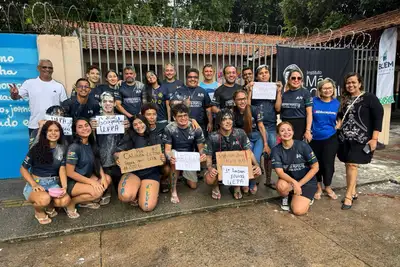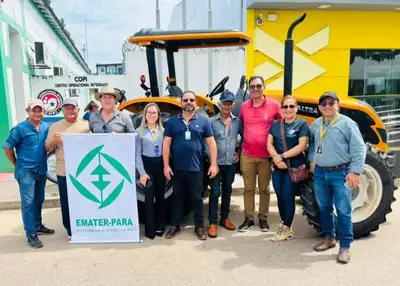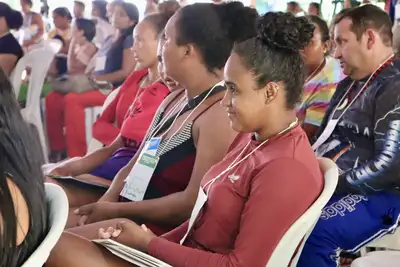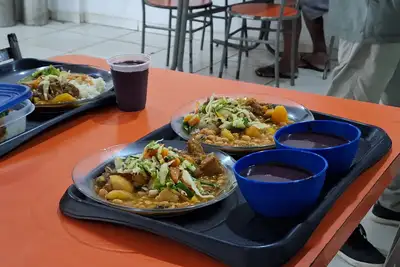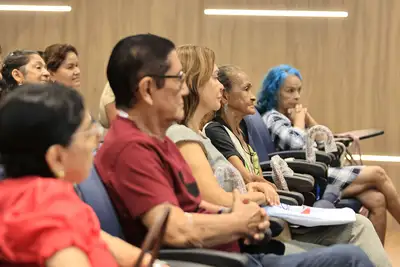Farmers in Tracuateua receive financial compensation to preserve forest
The initiative is a partnership between the Government of Pará, the Federal Government, and the United Nations Development Programme (UNDP)
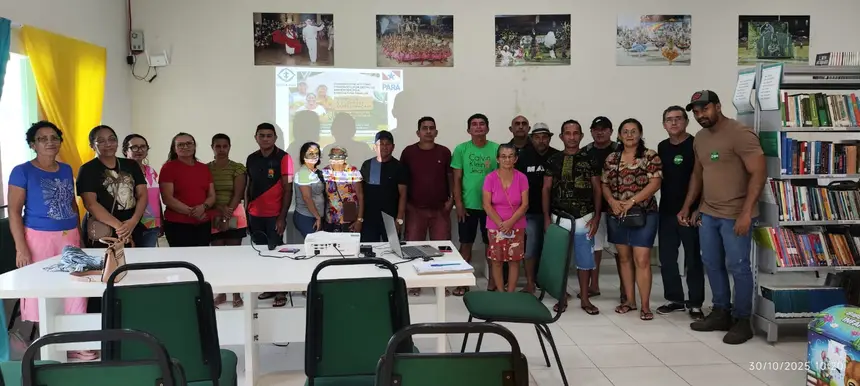
Half of the approximately five hectares of Major's Site, in the Campo Novo community, in Tracuateua, on the Caeté River, is preserved forest: "And the other half is our cassava plantation. We produce about 150 kilograms of water flour per month. It’s an arrangement that has paid off," says the aforementioned "Major," the nickname of farmer João da Rosa, 63 years old.
The farmer lives with his wife, Deusa Ivone de Araújo, 44 years old, plus two children and two stepchildren: Luciana, 17 years old; Lucivan, 21 years old; Luciano, 22 years old; and Luziele, 25 years old.
The property is one of those served by the local office of the Technical Assistance and Rural Extension Company of the State of Pará (Emater) under the Regulariza Pará Program and the Forest + Amazon Project, aimed at direct compensation for the sustainable maintenance of Amazonian ecosystems in the municipality.
The Payments for Environmental Services (PES) mechanism, coordinated by the Government of Pará and financed by the Green Climate Fund (GCF), is an initiative of the Ministry of the Environment and Climate Change (MMA), in partnership with the United Nations Development Programme (UNDP).
This week, 27 families without environmental liabilities living in 15 communities in Tracuateua received the enrollment payment, individually worth R$ 1,500. The next steps require a validated rural environmental registry (CAR) and a national family farming registry (CAR), documents issued by Emater.
Properties ranging from three to 50 hectares primarily involve cassava planting and processing, açaí planting, and grain planting.
Mobilization
In a meeting this Thursday (30) at the Francisco de Paula Pinheiro Municipal Library in the Centro neighborhood, the Emater team addressed doubts and provided further clarifications. "It’s a mobilization movement, a consciousness-raising effort, and I dare to even call it revolutionary, because it not only discusses preservation: it injects resources and concretizes public policy as a real opportunity for transition and adaptation of productive systems," said Nadson Oliveira, head of the local Emater office in Tracuateua, a fishing technician and environmental manager.
He added: "Emater's support, with the essential collaboration of the 'Regulariza Pará' program and joint work with the communities, respects traditions, the sociocultural and economic viability of family farming enterprises, and the demands of the markets in Tracuateua and the region."
Nadson Oliveira highlights the effectiveness of sustainable practices as results, which generate income while conserving natural resources, such as management: "There is also an inherent factor of improving the quality of life for families, due to the context of housing in healthier areas and the expectation of increased profits, in the redefinition of markets. We also consider that communities increasingly manage natural resources with responsibility and autonomy," he says.
Text by Aline Miranda


